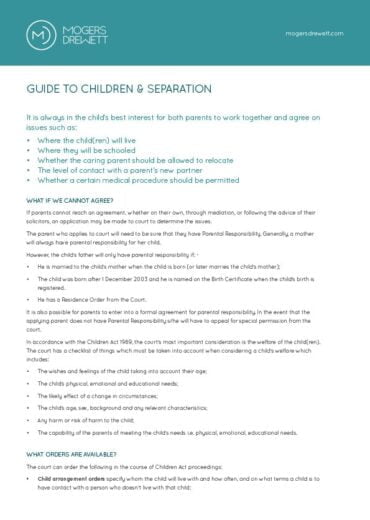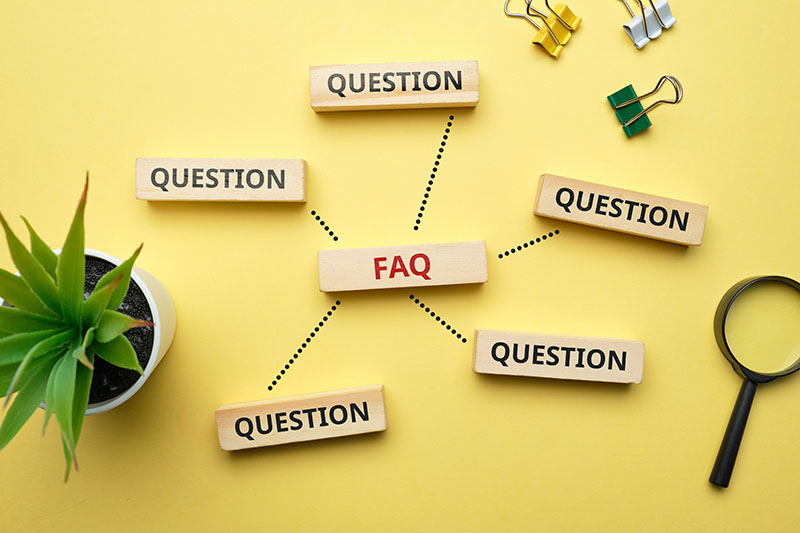Custody of children when families separate
When parents separate, the welfare of their children is likely to be their number one priority. Most parents try to work together to agree an arrangement for their children. If you’re in a separating couple and struggling to agree terms, our specialist family solicitors in Bath, Wells, Sherborne and Frome can represent you and help you reach an agreement.
Our child custody services
Child custody and Child Arrangements Orders
While the term ‘custody’ is still commonly used, in English law the term no longer exists. Parents who are unable to agree where their children will live and how much time they will spend with each parent can ask the Courts to decide at a Court hearing.
A Child Arrangements Order will then be put in place by the Court, which details the living and contact arrangements with both parents.
A Court will always consider what is in the best interests of the child, using a welfare checklist before making their decision. This checklist requires them to consider the physical and emotional needs of the children as well as their wishes and feelings, taking account of their age and maturity. The Court will also look at the capabilities of the parents to meet the physical and emotional needs of the child.
In most cases, the Court presumes that both parents are important. So unless children are at risk of harm, they will ensure that a child continues to have a relationship and spend time with both parents.
International divorce
International divorces can make negotiations more complex where children are involved.
Our team of international family solicitors can provide specialist advice for families in disputes over custody, visitation rights and relocation, including if you are worried about your children being taken abroad without your consent.
Next steps: Get in touch to discuss child custody
If you are getting divorced or dissolving a civil partnership and can’t agree on where your children should live, contact our expert team on: 0800 533 5349 or enquiries@mogersdrewett.com
Meet the team
Frequently asked questions
Parental responsibility (PR) means the legal rights, duties, powers, responsibilities and authority a parent has for a child and the child’s property. A person who has parental responsibility for a child has the right to make decisions about their care and upbringing. A mother automatically has parental responsibility for her child from birth.
A father usually has parental responsibility if he’s either:
- married to the child’s mother
- listed on the birth certificate (after a certain date, depending on which part of the UK the child was born in)
You can apply for parental responsibility if you do not automatically have it.
Your child’s living arrangements should be based on their needs, and not the needs of either parent. The Court will support both parents in maintaining a relationship with their child following separation and will always make arrangements based on the child’s best interest.
The end of a relationship is generally a difficult time for parents and their families.
Children can pick up on this and become confused, unhappy or even blame themselves for the break-up.
The National Society for the Prevention of Cruelty to Children (NSPCC) advises that separating parents should:
- Remind children they are loved by both parents
- Be honest when talking to them, but keep in mind their age and level of understanding
- Avoid blame or negative feelings about the other parent
- Keep up routines such as going to school and meal times
- Let children know it’s ok to talk about their feelings
The term ‘joint custody’ is no longer used in the English Courts. It has been replaced by the Child Arrangements Orders.
The term ‘joint custody’ usually refers to a shared ‘live with’ Child Arrangements Order, which determines how a child will share their time between their parents.
In this situation, the child splits their time between both homes, although this time does not necessarily have to be equal.
The Court, at all stages, seeks to encourage the parents to settle their disputes and come to an agreement themselves. If they cannot, the Court will decide.
Unless one parent poses a risk to children, such as through addiction or criminal behaviour, it’s most common for a child to divide their time between two divorcing parents.
But while equal time spent with each parent might seem like the fairest option, there are several factors to take into account.
For example, constantly changing location and being caught between disagreements on upbringing could be psychologically and emotionally challenging for a child.
If parents can’t agree on child arrangements, the Court will consider all factors to issue a Child Arrangements Order that protects the child’s best interests.
If all parties agree to changes to a Child Arrangements Order issued by the Court, then departing from its terms is not considered a breach. However, it would be best to put these agreements in writing and have them signed to prevent future allegations of a breach.
These informal changes are not legally binding, and do not become so unless the order is formally changed by the Court.
If an informal agreement to change child arrangement comes to an end, the parties must follow the original order.
While Courts prefer children to maintain a relationship with both parents, one parent might be given full responsibility if the other:
- Is unfit to parent properly
- Has a record of neglect or abuse
- Has a history of criminal behaviour
- Is unable to provide for the child’s needs
- Plans to relocate, especially to another country
- Has attempted to damage the child’s relationship with the other parent
Where there has been domestic violence or disturbance in the home before the separation, it might be appropriate for contact with children to be supervised or supported by a third party. This provides a calm and safe environment where the child can maintain a relationship with a parent and get used to the new arrangements.
Often, extended family members are left out of the arrangements for a child when parents or guardians separate. Whether you are a parent, grandparent or step parent we can help you understand your rights, duties and obligations in relation to any child in your life.





